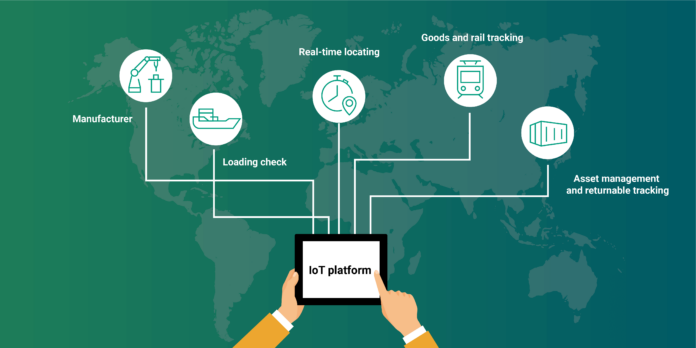In the dynamic world of modern business, logistics plays a pivotal role in determining the success of an enterprise. It is the backbone that supports the flow of goods, information, and resources, ensuring that businesses can meet customer demands efficiently and effectively. However, managing complex supply chains and logistics operations is no easy feat. It requires meticulous planning, coordination, and execution, often across multiple geographies and involving numerous stakeholders.
The challenges are manifold, ranging from maintaining inventory accuracy to ensuring timely delivery, and from coordinating transportation to managing warehousing operations. This is where the need for efficient logistics management becomes paramount.
Definition of Logistics

Logistics, in its simplest form, is the coordinated movement of goods, information, and resources from one point to another. It encompasses a wide array of activities, including transportation, inventory management, warehousing, and order fulfillment. Each of these activities is a cog in the wheel of logistics, and the smooth functioning of the entire system depends on the efficient management of each of these individual components. In essence, logistics is the glue that holds the entire supply chain together, ensuring that the right products reach the right place at the right time.
The Importance of Efficiency in Logistics
Efficiency in logistics is not just about speed; it’s about doing more with less. It’s about reducing costs, improving customer satisfaction, and enhancing overall business performance. Streamlined logistics operations can significantly impact inventory control, order accuracy, and timely delivery, all of which are critical to maintaining a competitive edge in today’s fast-paced business environment. Efficient logistics can also lead to improved resource utilization, reduced waste, and increased profitability.
Common Challenges in Logistics Management
Despite its importance, logistics management is fraught with challenges. Inefficient processes, lack of visibility into the supply chain, and coordination issues among various stakeholders can lead to delays, errors, and increased costs. These challenges can have a significant impact on business operations, affecting customer experience, and ultimately, the bottom line. Therefore, overcoming these challenges and optimizing logistics operations is a top priority for businesses across industries.
Introduction to Logistics Software Solutions
Logistics software solutions have emerged as specialized tools that harness the power of technology to streamline intricate logistics processes, enhance supply chain visibility, and boost operational efficiency. These innovative US logistic solutions encompass a wide range of functionalities, from warehouse management and transportation planning to inventory control and order fulfillment.
Automating and optimizing various aspects of logistics operations, these software solutions deliver substantial enhancements in efficiency, accuracy, and cost-effectiveness. Businesses can leverage the potential of logistics software solutions to gain a competitive edge in today’s dynamic marketplace.
Warehouse Management Software (WMS)

At the forefront of logistics software solutions is Warehouse Management Software (WMS). This powerful tool is specifically designed to optimize warehouse operations by offering comprehensive features for inventory control, order fulfillment, and space utilization, among others. With WMS, businesses can embrace automation and streamline complex warehouse processes, leading to remarkable improvements in efficiency and productivity.
Eliminating manual errors, optimizing inventory levels, and maximizing storage space utilization, WMS empowers businesses to achieve higher operational efficiency, reduce costs, and deliver superior customer service. The implementation of WMS ensures that warehouses function seamlessly, facilitating smoother order processing, faster cycle times, and improved inventory accuracy.
Transportation Management Software (TMS)
Transportation Management Software (TMS) is an indispensable component of logistics software solutions, serving as a strategic tool for businesses to manage their transportation needs effectively. It assists in optimizing logistics operations by enhancing route planning, making intelligent carrier selection, providing real-time tracking, and managing freight costs.
By leveraging TMS, businesses can significantly reduce transportation costs, improve delivery times, and enhance customer satisfaction. It also aids in reducing carbon footprint by optimizing routes, thereby contributing to sustainable business practices. Furthermore, TMS can provide valuable analytics and reporting capabilities, offering insights into transportation trends and performance, which can be used to make informed strategic decisions.
Inventory Management Software
Inventory management software is a powerful tool that enables businesses to manage their inventory more effectively and efficiently. It provides features for accurate demand forecasting, inventory optimization, and order management, all of which are critical in today’s dynamic market environment. The usage of such software, businesses can reduce stockouts and overstocks, improve order accuracy, and enhance customer satisfaction. It also helps in reducing holding costs and improving cash flow, making it an indispensable tool for modern businesses. Inventory management software can integrate with other systems such as procurement and sales, providing a holistic view of the inventory lifecycle and facilitating better decision-making.
Order Management Software
Order management software is a tool that automates the process of receiving, processing, and fulfilling orders, thereby eliminating manual errors and inefficiencies. It not only improves order accuracy but also significantly reduces the time taken from order receipt to delivery. This results in enhanced customer satisfaction by ensuring timely and accurate order fulfillment.
It provides businesses with valuable insights into order trends and customer behavior, aiding in strategic decision-making. The software can also integrate with customer relationship management (CRM) systems, providing a comprehensive view of the customer journey and enabling personalized customer experiences.
Supply Chain Visibility Solutions

Supply Chain Visibility Solutions provide real-time insights into the movement of goods and materials across the supply chain. They improve coordination among various stakeholders, reduce delays, and enable proactive decision-making. This leads to improved operational efficiency and customer satisfaction.
Additionally, these solutions help in risk management by identifying potential disruptions in the supply chain, allowing businesses to take corrective action in a timely manner. They also facilitate better communication and collaboration among stakeholders, fostering a more responsive and agile supply chain.
Integration and Connectivity
Integrating logistics software solutions with existing business systems is crucial for seamless data exchange, automation, and collaboration across departments and stakeholders. Seamless connectivity enables businesses to leverage the full potential of their logistics software solutions, leading to improved operational efficiency, cost savings, and enhanced customer satisfaction. Furthermore, it ensures data consistency and integrity across systems, thereby providing a single source of truth for all logistics operations.
Conclusion
Logistics software solutions offer a powerful way for businesses to revolutionize their logistics operations, improve efficiency, and gain a competitive edge. By embracing technology and leveraging these solutions, businesses can thrive in today’s fast-paced and increasingly complex business environment. The future of logistics is here, and it is digital.









